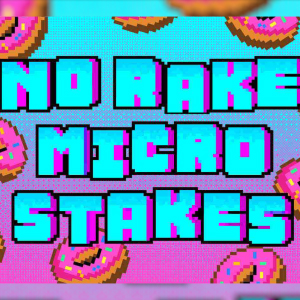Beginner's Guide and Strategies to Playing Poker
3 months ago

23 Jun
Poker is one of the most popular and intriguing pursuits in the world with tens of millions of people enjoying the pastime for fun and entertainment. The game first originated in the early 18th century and has been enjoyed for generations. Today, poker continues to grow and appeal to new audiences.
If you are keen to play the game but don't know where to start, this article will tell you everything you need to know. It may appear daunting but once you get a solid understanding of what is required, you will begin to develop your poker skills.
Get to Grips with Basics
When it comes to taking on any new pursuit, it is imperative you take the time to really learn about nuts and bolts of the challenge as opposed to diving in head first. Doing your due diligence will help you play with confidence when the time comes and ensure you don't make any costly mistakes.
Be sure to check out different resources around poker games and read expert reviews on various platforms so that you can find the right setting to match your poker style and preferences. Conducting thorough research will benefit your gaming experience in the long run.
How to Play Poker
So, when you are setting out on your poker journey, it's smart to first know the hand rankings. From high to low, this will form the basis of all your decisions and reactions throughout the game.
You may have heard of Texas Hold 'em poker and this is one of the most popular variations of the game. Each player will be dealt two cards face down and five cards facing up. Making the best hand using the five community cards and your own cards is what you're after and achieving this will see you win. As the game plays out, participants will wager against each other depending on the value of their hand.
As a beginner, it's a wise move to find out which hands which will win out more than others. Some of the best starting hands will include big pairs and those cards with a connection so AA, KK, QQ and AKs. So with this in mind, if you find yourself in a scenario with zero pairs or connecting cards, this may be the game to step back from as opposed to proceeding forward with hope as opposed to a strategy. This thinking will help you to focus on which pots to enter and achieve more consistent results.
What are the Best Hands in Poker?
Here is a list of the different hands in poker in order of importance and what they entail.
Royal Flush
This is the hand with the possible value when wild cards are not in use and will include ace, king, queen, jack and ten all in the same suit.
Straight Flush
A straight flush is when you get five cards of sequential rank all of the same suit. So, for instance, the three, four, five, six and seven of hearts.
Four of a Kind
This is a strong hand in poker and features four cards of the same rank.
Full House
A full house consists of three cards of one rank and two cards of another so, for example, three queens and two jacks together.
Flush
This is five cards of the same suit but they do not need to be in sequential order and can be random.
Straight
A straight hand is five cards that are in consecutive rank but regardless of suit so this can be two of spades, three of hearts, four of clubs, five of spades and the six of diamonds. In this instance the ace can act as the highest card together with a king or the lowest with a two.
Other hands include three of a kind, which are three cards belonging to the same rank, so three sixes for instance, two pair, which of course requires two separate pairs and high card which is the weakest hand and, as it doesn't form any combination, is determined by which player holds the highest value card.
Observe your Opponents
Being able to read the game is often more important than the initial hand you receive in poker. Observing your opponents is a vital skill as it will provide you with important insight into playing styles, individual tendencies and hands.
Bluffing is all about holding a position of power no matter what cards have been dealt. Giving your opponent the wrong steer is an integral part of the game but shouldn't be overused. Bankroll management is key so if you boast a strong hand, this could be an opportunity to enhance your stake and send a message of certainty to your fellow players.
Physical tells and emotional cues can be read on faces while body language around the table can also give the game away as to whether a person has a strong or poor hand. Timing is crucial, so if you believe your opponent to have a weak hand, that is the time to push forward and display confidence so that they are more likely to fall your bluff and fold.
Be bold and forthright in your play and directions in order to put pressure on opponents. It is a game of poise and patience and goes far beyond what is on the cards. As a beginner, build up your strategy and learn as you game.
Wrapping Up
Overall, when starting out in the world of poker, it's important to develop strategies that can be followed during various points of your encounter. Research is everything and taking the time to boost your skills is a must. There is no one strategy which will fit all of your games and so you must mix it up and keep an eye out for different moves and switches between each player you come up against. Every person will navigate situations differently.







Comments
You need to be logged in to post a new comment